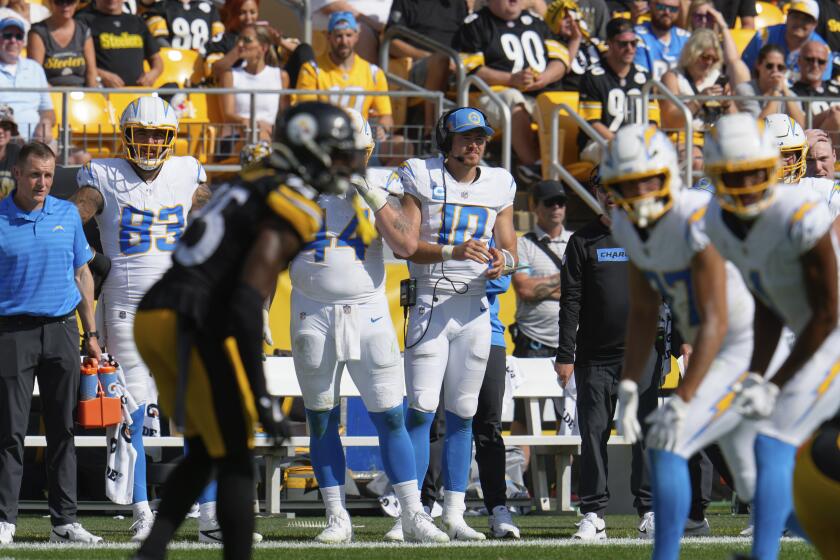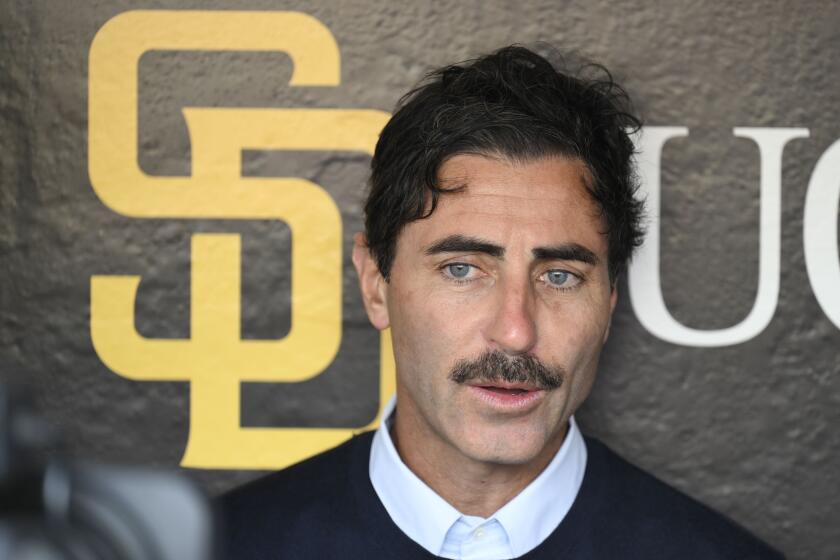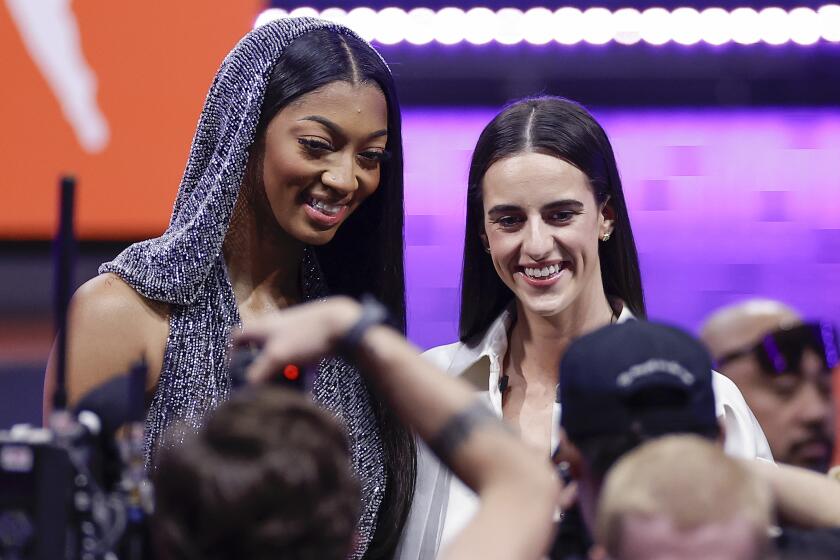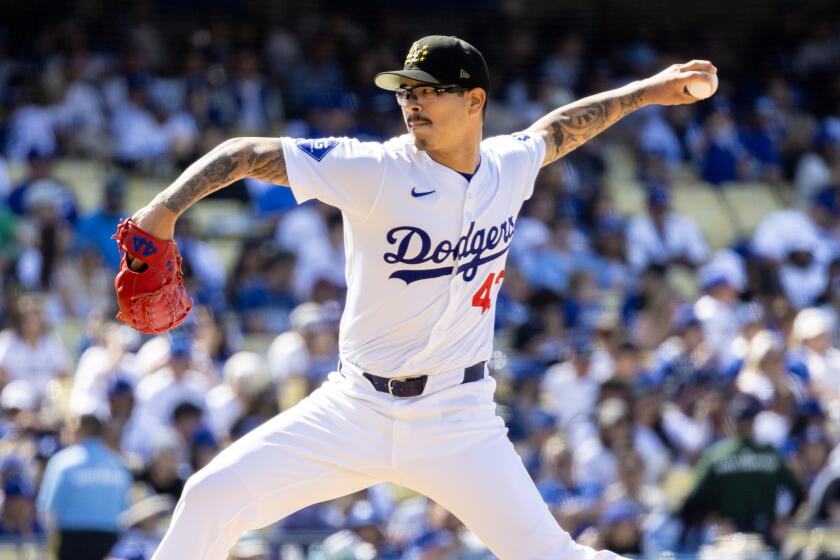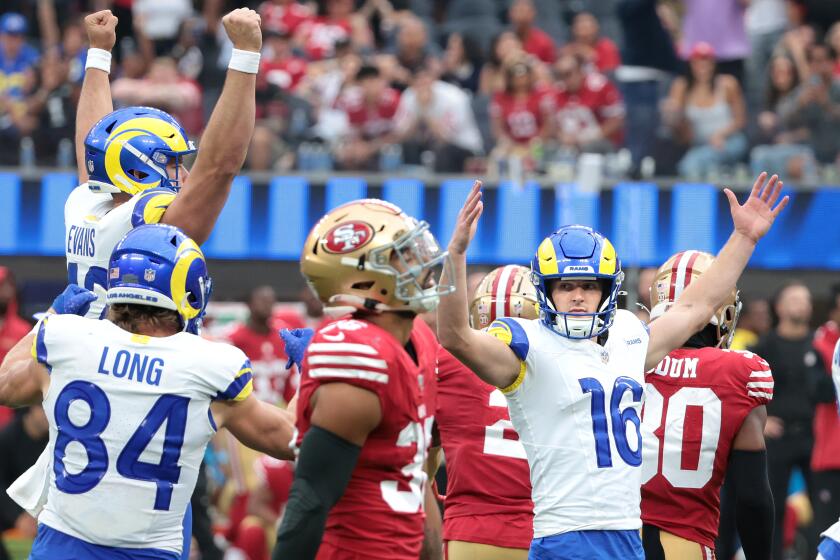Justices to consider school sports rules
The Supreme Court agreed Friday to referee a high school sports dispute over whether coaches have a free-speech right to recruit athletes from other schools.
Last year, a federal appeals court threw out a $3,000 fine and a two-year suspension given to a Tennessee high school football powerhouse whose coach was accused of violating the state’s anti-recruiting rule, which is similar to regulations around the country.
Coach Carlton Flatt of the private Brentwood Academy had sent letters and made phone calls to a dozen eighth-grade boys inviting them to spring practice at his school near Nashville.
After the state high school athletic association handed down its punishment, the academy sued in federal court alleging a violation of the 1st Amendment.
In a long-running legal battle, a federal judge as well as the appeals court sided with Brentwood Academy and said the coach’s letters and calls were protected as free speech.
The Tennessee Secondary School Athletic Assn. appealed to the Supreme Court, arguing that such a free-speech rule could wreak havoc in sports. Schools and coaches in sports leagues “agree to abide by the rules,” and they cannot, for example, scream in a referee’s face and then claim the protections of the 1st Amendment, the association said.
The justices met Friday for the first time since the Christmas holiday and voted to hear six new cases besides Tennessee Secondary School Athletic Assn. vs. Brentwood Academy.
In Long Island Care at Home vs. Osborne, the court will decide whether certain home-care workers are protected by the federal law that requires a minimum wage and overtime pay.
Since the 1970s, the Labor Department has said home-care workers who provide companionship services to the elderly and infirm are generally not covered by the law.
But in August, a U.S. appeals court in New York rejected that exemption for home-care employees of outside companies.
The home-care industry, which appealed, said that the decision could greatly increase the cost of care for millions of people who are old, sick or disabled.
The court also will hear a potentially important discrimination case that tests whether companies can be held liable for racial bias by a low-level supervisor.
Stephen Peters, a black employee for Coca-Cola in New Mexico, sued the company after being fired, alleging he was a victim of racial discrimination.
Last year, the U.S. appeals court in Denver cleared his suit to go to trial, though its judges agreed that the regional manager in Phoenix who ordered the firing “had no idea that Mr. Peters was black.” There was, however, evidence that his actual supervisor showed a bias against blacks and treated Peters unfairly.
The court agreed to hear the case, BCI Coca-Cola Bottling Co. of Los Angeles vs. the Equal Employment Opportunity Commission, to clarify the law on handling discrimination complaints.
The justices also said they would consider making it harder to sue companies for stock fraud. Tellabs, a maker of telecommunications equipment, was sued by investors who said its executives had knowingly inflated its value.
A federal appeals court in Chicago cleared the suit to go forward, but the company appealed, arguing the plaintiffs lacked evidence that the executives knew their projections were wrong.
The case, Tellabs vs. Makor Issues & Rights, is the latest to test how much proof investors must produce before they can move forward with a stock fraud suit against a corporation.
The justices are to hear arguments in these cases in March or April and to issue rulings by late June.
More to Read
Go beyond the scoreboard
Get the latest on L.A.'s teams in the daily Sports Report newsletter.
You may occasionally receive promotional content from the Los Angeles Times.






